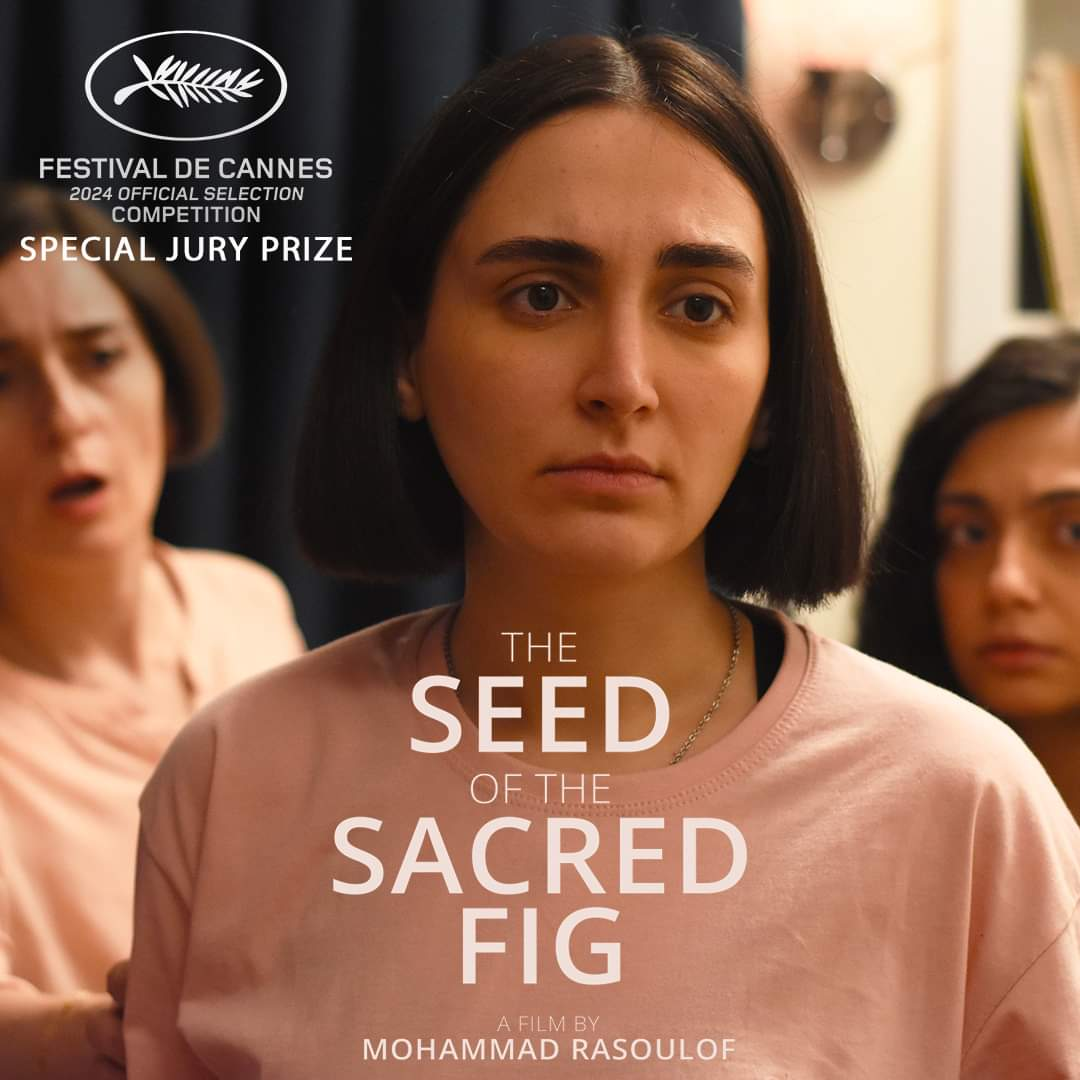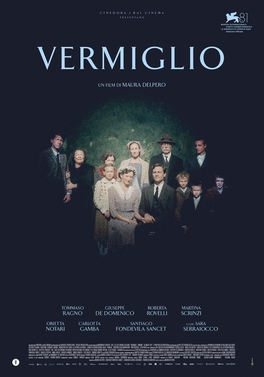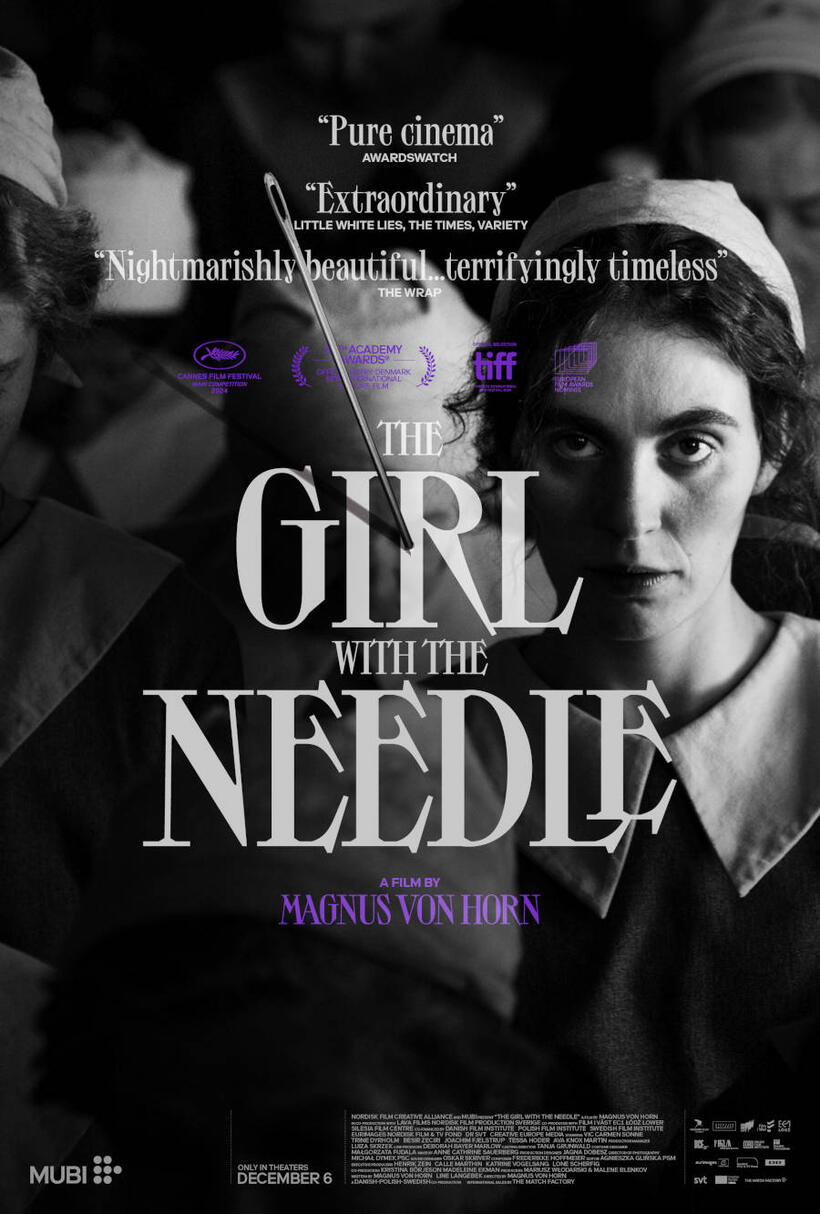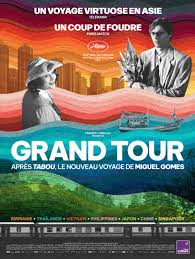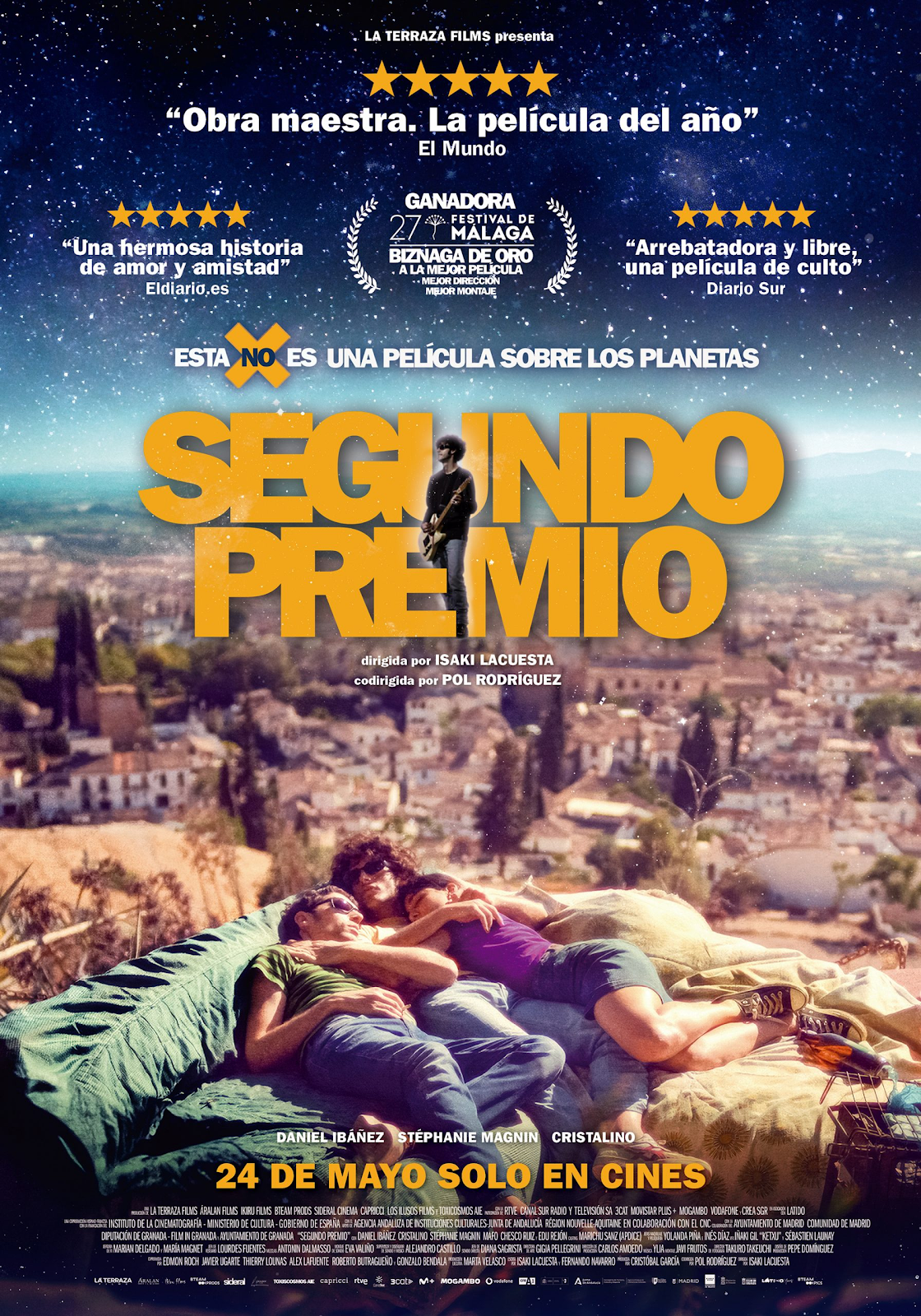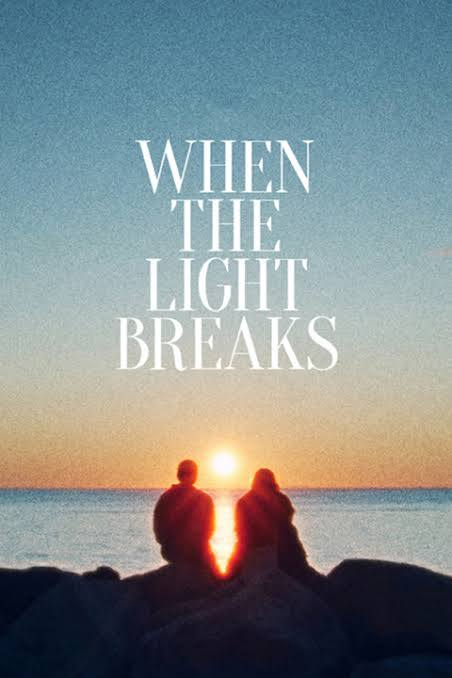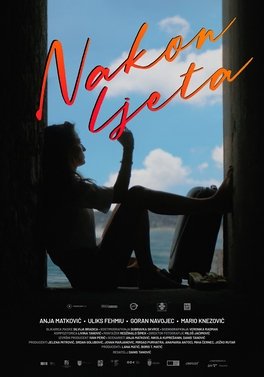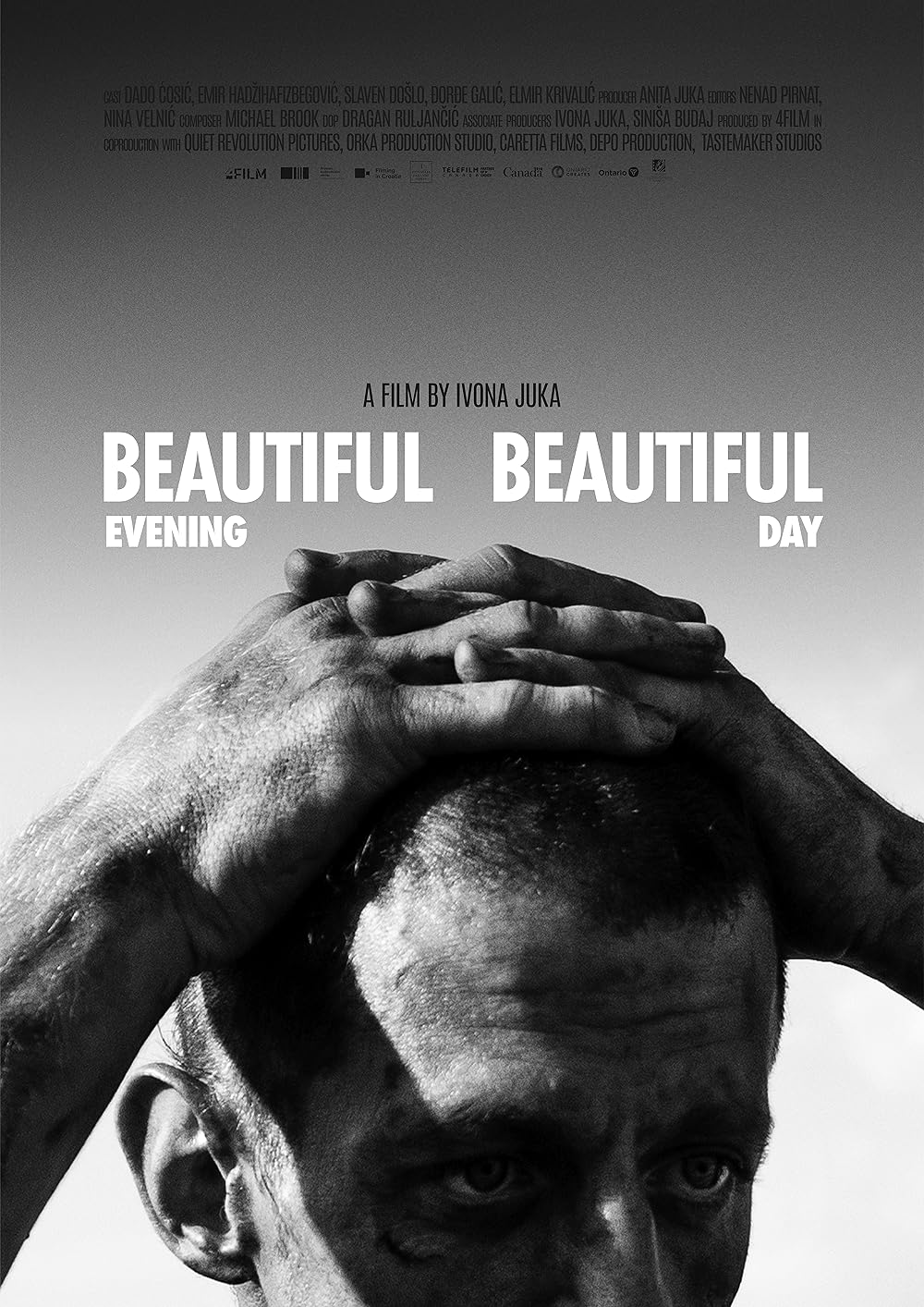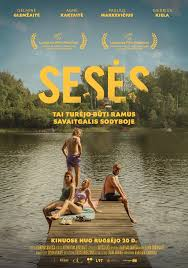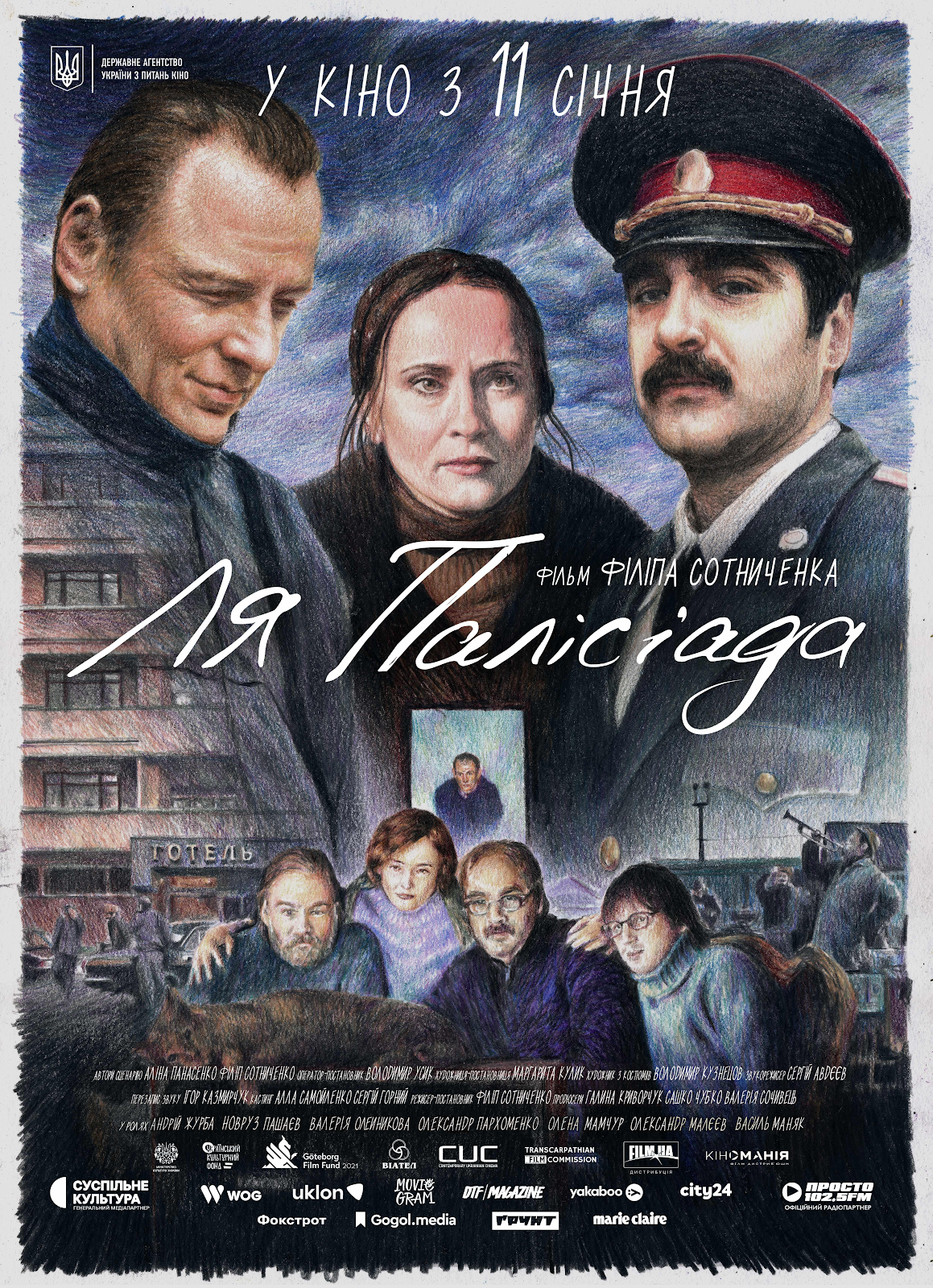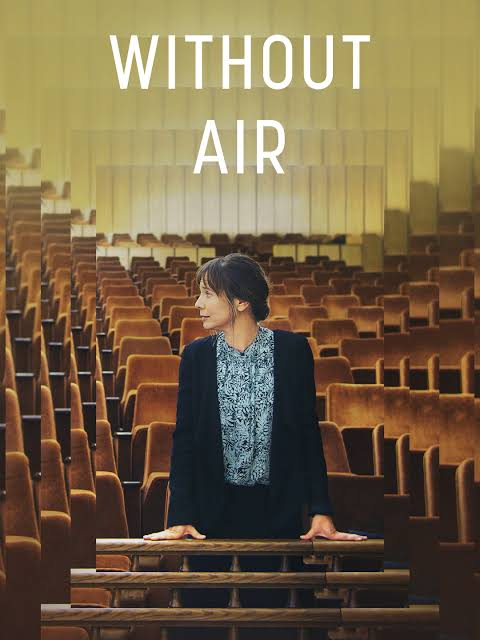I finally got to see "Vermiglio" last night at the EU Film Festival meaning that I've seen two-thirds of the group.....So, here is a rundown of the 18 films submitted from Western
Europe, two days before the list is announced. Western Europe traditionally dominates the category, getting eight spots on the shortlist last year and seven the year before. This year, they may get even more....While I usually complain, the fact is that the films in this group are simply miles better than the rest of the world this year. Iceland, Ireland and the Netherlands would be in my personal "Top 5", while France and Switzerland would be in my Top 15....and I haven't seen several of the frontrunners yet.
Number of Countries Participating this year: 18
Number of Countries That Have Participated in the
Past: 20
Who’s Missing?: LUXEMBOURG announced that
they hadn’t received any eligible submissions, leaving them absent for the
first time since 2012. As a fairly small country, this is clearly a fluke and they
will almost certainly be back next year.
GREENLAND (population 60,000) is the smallest country ever to
enter the Oscar competition and they haven’t sent a film since 2012.
VIRTUAL LOCKS:
1.  GERMANY- “The Seed
of the Sacred Fig” (Letterboxd: 3.9)
GERMANY- “The Seed
of the Sacred Fig” (Letterboxd: 3.9)
2.  FRANCE
- “Emilia Perez” (3.1)
FRANCE
- “Emilia Perez” (3.1)
Traditional Oscar powerhouses France and Germany are almost always on the shortlist (Germany has made it 7 of the past ten years) and these two films are as close as you can get to "locks". The critically acclaimed "Seed of the Sacred Fig" overcame its biggest hurdle when AMPAS confirmed it was eligible to represent Germany on a technicality. Iranian director Mohammad Rassoulof made the movie in Iran in complete secrecy and escaped to Germany where he got asylum. Family thriller "Sacred Fig" is one of the most acclaimed films of the year, with a backstory worthy of a movie itself and a Golden Globe nomination cemented its status as a surefire Oscar nominee. It's in.
Getting to the shortlist requires people to see your movie and "Emilia Perez", a frontrunner in a slew of Oscar categories including Picture, acting, and directing, will be seen by more than any other. Its the Oscar frontrunner and even though I'm not certain it actually will win (there has been a serious critical backlash), it certainly won't have any trouble making it to the next round.
FRONTRUNNERS:
These four countries shouldn't have too much trouble making the shortlist....though there's always one surprise snub....
3.  IRELAND- "Kneecap" (4.1)
IRELAND- "Kneecap" (4.1)4.  DENMARK- "The Girl with the Needle" (3.7)
DENMARK- "The Girl with the Needle" (3.7)
5. ITALY- "Vermiglio" (3.6)
ITALY- "Vermiglio" (3.6)
6.  ICELAND- "Touch" (3.6)
ICELAND- "Touch" (3.6)
So I've seen three of these four - Iceland, Ireland and Italy....
First of all, the Oscar campaigns for "Vermiglio" and "The Girl with the Needle" got a major boost when they were nominated for the Golden Globes in this category last week. No Golden Globe Foreign/International nominee that was submitted by its country has failed to make the Oscar shortlist since "Girl" in 2018. "The Girl with the Needle" also was a finalist for the NBR, beating out not only Iceland, Ireland and Italy for a spot, but also "Emilia Perez".
Those two precursors are good news for DENMARK, which has been shortlisted (or better) 11 of the past 14 years....(possibly the best record in the world?). I've actually heard very mixed things about this B+W horror-tinged period drama about a suspicious adoption agency...but it's peaking at the right time, and winning awards and nominations in all the right places...plus Denmark almost never misses. It's probably safe.
As I mentioned earlier, Iceland and Ireland are both in my own personal Top 5 and I'm really rooting for them both to make it. "Kneecap" is a raucous, drug-fueled, crowdpleaser comedy from IRELAND about a three-person Irish-language hip-hop trio who revolutionizes the indigenous language movement in Northern Ireland. The shortlist usually includes one genuine comedy ("Les intouchables", "Amerikatsi", etc.) and "Kneecap" looks the most likely to grab this spot. Critics reviews have been surprisingly warm for this decidedly less grim "Trainspotting" and its a genuinely well-made and wonderful film. "Touch", from ICELAND, is a gentle film about aging, lost loves and persistent memories as an elderly Icelandic man goes on an international quest for his long-lost Japanese love during the dark days of COVID travel restrictions in 2020. I don't want to reveal any plot details but the film deftly travels between countries, languages and time periods to tell a beautiful and satisfyingly complete story. While everyone seems to love the cheeky "Kneecap", I've definitely heard that not everyone loves "Touch" as much as I do. But both films were released early in the year, got U.S. cinematic and streaming releases to raise their profiles. And I expect to see both of them on the shortlist on Tuesday....but sadly probably not amongst on the Final Five.
As for ITALY...."Vermiglio" is a cute little drama about a large family living in a small village in the freezing mountains of northern Italy circa 1944, in the waning days of World War II. A Sicilian deserter arrives in the village and falls in love with one of the daughters, which sets a number of events in motion. There are so many children in this family that it took me half the movie to keep them straight. But since the main plotline revolves around Lucia, the eldest, it was still fairly easy to follow. Do you remember those pleasant but forgettables dramas that got Oscar nominations in the 90s, like "The Other Side of Sunday"? "Vermiglio" is a little bit like that. Reviews have been mostly warm and the Golden Globe has helped solidify its status as a frontrunner...though it wouldn't be on my list.
DARK HORSES:
7.  NORWAY- "Armand" (3.3)
NORWAY- "Armand" (3.3)
8.  SWEDEN- "The Last Journey" (3.7)
SWEDEN- "The Last Journey" (3.7)
9.  NETHERLANDS- "Memory Lane" (3.5)
NETHERLANDS- "Memory Lane" (3.5)
10.  UNITED KINGDOM- "Santosh" (3.5)
UNITED KINGDOM- "Santosh" (3.5)
In the past three years, the Western European films got 9 (2021), 7 (2022) and 8 (2023) of the 15 spots on the shortlist....So, the films in this group are definitely strong contenders.
I've seen "The Last Journey" and "Memory Lane" which, interestingly enough, have almost the same basic plot - a road trip from northern Europe through France in an ancient car with an elderly relative. In "Memory Lane" from THE NETHERLANDS, the film is a comedy-drama about a husband and wife, while "The Last Journey" from SWEDEN is a documentary about a father and son (and the son's best friend). I adored "Memory Lane", which is a rare comedy that is very funny while at the same time heartbreakingly sad....It's such a difficult genre to get right but Jelle de Jong manages it effortlessly. Maartje and Japp are the couple at the center of "Memory Lane". Crotchety Japp is exhausted from hiding his beloved wife's worsening dementia from friends and family but the two are forced to go on a road trip through France to Spain to visit a dying friend. In a year where so few films are "memorable", I can literally remember Maartje's facial expressions on a beach, and bits of Japp's final monologues. This is a situation that we all know cannot end happily, and growing old cannot be reversed. In "The Last Journey", a popular Swedish director is sad to see that his once vibrant father has become depressed and lethargic in retirement. He basically forces his father on a road trip to southern France where the family once spent their summers, to rekindle his love for life. I thought "Memory Lane" was a far superior film to "The Last Journey"....but oh my God, when I saw "The Last Journey" at a local festival, the audiences LOVED IT and the filmmakers have been on a tour in the U.S. to promote the film for Oscar consideration. This is clearly a film that resonates with a lot of people and it's the most likely to make the shortlist among the five submitted documentaries. I think "Last Journey" may be the surprise announcement on Tuesday.
I haven't seen the other two films but "Santosh", representing the UNITED KINGDOM, just got a surprise National Board of Review mention alongside Brazil, Canada, Denmark and Germany (notably beating out France and Italy). This crime thriller is set in rural India where the widow of a police chief "inherits" his job in the community. An Oscar poll I'm part of currently has "Santosh" in 16th place, just barely missing out on the shortlist. And, as of today, that's what I think will happen. It is great poetic justice for India to see "All We Imagine as Light" and "Santosh" winning awards and nominations while the fun but undeserving "Laapataa Ladies" goes unrewarded.
What I've heard about "Armand" from NORWAY is that its very, very divisive with many film-watching colleagues cryptically informing me that it can't be nominated because of "what happens". But this drama focused on politicking at an elementary school has gotten quite strong reviews and school politics is something this committee has often shown interest in ("Teachers Diary", "Monsieur Lazhar" and "Entre les murs" got Oscar nominations, but let's also remember the surprise shortlist spot for "Playground" three years ago). I'm trying to avoid reading too much about Norway until I see the film...but I'm predicting it makes the shortlist and fails to get nominated if it's that "divisive".
LESS LIKELY:
11.  SPAIN- "Saturn Return" (Segundo premio) (3.6)
SPAIN- "Saturn Return" (Segundo premio) (3.6)
12.  PORTUGAL- "Grand Tour" (3.4)
PORTUGAL- "Grand Tour" (3.4)
13.  SWITZERLAND- "Reinas" (3.5)
SWITZERLAND- "Reinas" (3.5)
14.  AUSTRIA- "The Devil's Bath" (3.5)
AUSTRIA- "The Devil's Bath" (3.5)
Let's start with the two films I have seen- Austria and Switzerland.
If we were awarding films on their first and last ten minutes, period drama "The Devil's Bath" from AUSTRIA would be much higher on the list. This horror-drama from the team that brought us the creepy, disturbing "Goodnight Mommy" begins with a spooky, shocking and surprising murder, promising the audience a rich drama suffused by occult themes and a haunting period atmosphere....And the film's ending matches that, and finishes with a bang. But...oh dear...."Devil's Bath" loses its way in the middle and it's a real slog to get through the second half. The film definitely gives you a lot to think about regarding depression and the status of women in medieval times....but I don't think viewers will have the patience...and horror is a difficult genre for the Oscars.
SWITZERLAND has sent one of the best films in the group - Family drama "Reinas" exceeded all of my expectations....but the film has no buzz and nobody is talking about it, which is fatal under the new rules. This quiet family drama is about a divorced couple living in Lima, Peru during the 1990s, when political violence and terrorism was taking place on a daily basis. The mother has primary custody of their two daughters (aged 10 and 16). Their father visits occasionally but the mother has successfully obtained a U.S. visa for her and the girls to move to the United States and start new lives...but Peruvian law requires that she have the father's permission to get their passports. The headstrong elder daughter plots to get the usually easygoing father not to sign, so she can stay with her friends. A farewell party practically turns the film into a thriller. I loved this film, which is actually a Peruvian film made by a director with dual Swiss-Peruvian citizenship, but I don't see it having a chance. But go see it if you can!
I haven't seen the two Iberian films- "Saturn Return" and "Grand Tour". Several Spanish film aficionados have told me that music industry drama "Saturn Return" from SPAIN is a wonderful film....but only if you know or are interested in Las Planetas, the band on which it is based. So many people have told me that it is inscrutable if you don't know the source material....and very few Americans will know anything about this band. Having said that, it looks quite good and reviews from international reviewers like ScreenDaily and Variety were very positive. It's probably out of luck but "Saturn" could definitely surprise. Of the six films I haven't seen in this group, it's the only one without a U.S. distribution deal....so I'm not sure I'll be able to judge for myself.
And that leaves us with PORTUGAL. As we mention year and after, Portugal holds the record for the most Oscar submissions without being nominated. Despite sending films almost every year since their 1980 Oscar debut, they've never even been shortlisted and I'm not sure they have ever even come close. A lot of people are predicting "Grand Tour" will finally break that streak....but I don't believe it. Set in 1917, the film is about a jilted bride who obsessively follows her diplomat fiance around Asia. Director Miguel Gomes won Best Director at Cannes, but I'm still angry at him for making me watch "Our Beloved Month of August", which was submitted by Portugal ten years ago and is probably the worst submission I've ever seen. In recent years, Portuguese submissions like "Vitalina Varela" and "The Metamorphosis of Birds" have been like watching paint dry. "Grand Tour" looks intriguing....Many people say it's a "travelogue" and I spent over a decade in Asia and look forward to rekindling memories of my own trips to Burma, Japan and Singapore. Reviews for "Grand Tour" are mostly positive, frequently calling the film "playful"....Cineuropa confirms the film is "easy to follow". I plan to see it Monday night (the night before the shortlist is announced). But I can't believe Gomes will be the one who will propel Portugal to lift its Oscar curse.
BETTER LUCK NEXT YEAR:
15.  BELGIUM- "Julie Keeps Quiet" (3.5)
BELGIUM- "Julie Keeps Quiet" (3.5)
16.  GREECE- "Murderess" (3.5)
GREECE- "Murderess" (3.5)
17.  MALTA- "Castillo" (approx. 3.5)
MALTA- "Castillo" (approx. 3.5)
18.  FINLAND- "Family Time" (3.4)
FINLAND- "Family Time" (3.4)
I've managed to see all four of these.
Let's start with my favorite of the group- MALTA's trippy mystery "Castillo", which is the film version of a local stage play. For the first 30 minutes, I said to myself "This is all very interesting....but I haven't a clue what the hell is going on.....There is no way they can rein in this story to make any sense!....." But they do! "Castillo" is messy and confusing but (almost) everything is explained in the end and the film actually ends up making sense. But the film requires patience and a sense of humor and a willingness to accept the very theatrical style of the film, which is easily understandable when you learn that the same cast and crew produced the play on stage. The plot is difficult to explain but focuses on a young woman meeting her estranged mother twenty years after she walked out on the family in the middle of the night.
FINLAND's "Family Time" is about a Finnish family reuniting for the Christmas holidays at their elderly parents' home in the countryside. The claustrophobic comedy-drama really does a good job at capturing the feeling of being trapped with relatives, and many of the family dynamics were instantly relatable to me...with a healthy dose of the Kaurismaki-esque Finnish sense of humor. But despite some occasionally charming moments, not much happens and the audience is unlikely to care about most of the characters...except perhaps Ella, the long-suffering matriarch and wife of grotesque alcoholic Lasse.
Honestly, I was disappointed by BELGIUM's sports drama "Julie Keeps Quiet", which was billed as a reaction to the #MeToo movement. In the film, a driven young tennis player (Julie) and her tennis club learn that an ex-teammate has committed suicide, amidst rumors in the national news of abuse by their own tennis coach. The coach is immediately suspended but what kind of abuse took place? Did he do it? Did he do it to others? The film sets up some very interesting questions but the film is made in the style of the Brothers Dardennes (who are credited as producers) which means we spend most of the film watching Julie play tennis. The friend I saw it with liked the film more than I did but commented that he would have liked it more if "Julie hadn't been so fucking quiet". Julie is such a stoic and unemotional figure that it's difficult to care much about her plight. I don't expect this film to do very well, especially in such a competitive Western Euro group.
Last, we have "Murderess" from GREECE, which was a fairly good film about a sketchy midwife in a traditional Greek village...but honestly I can barely remember a thing about it even though I saw it only a month ago. It's unlikely to make an impact on voters either.
FUN FACTS:
Genres: France
sent a musical, while Finland, Ireland and Netherlands (sort of) sent
comedies. Sweden sent a documentary, Austria veers into horror territory, while
the rest are straight dramas.
I’ve Already Seen: I’ve seen twelve of
the eighteen films- Austria (Amazon), Belgium, Finland, France
(Netflix), Greece, Iceland (Amazon), Ireland (Amazon), Italy, Malta, Netherlands,
Sweden, and Switzerland. I can see Portugal's film Monday night if I skip a holiday party.
Film I’m Most Excited To See: Of the remaining
six, definitely “Seed of the Sacred Fig”, representing Germany
Number I Predicted Correctly: Eight out of
eighteen….but I clearly had some help from the European shortlists.
Big Four Festivals:
The majority of these films played at a major festival, and
most of those won important awards.
· Berlin- Austria
(Best Cinematography), Finland, Switzerland (K+ Jury Prize)
· Cannes-
Belgium, Denmark, France (Jury Prize and Best Actress), Germany (Jury Special
Prize and FIPRESCI Award), Norway (Camera d’Or UCR), Portugal (Best Director),
UK
· Sundance-
Ireland (Audience Award)
· Venice-
Italy (Silver Lion)
Women Directors- There are seven women directors: Maura
Delpero (Italy), Veronika Franz (Austria), Tia Kuovo (Finland), Abigail
Mallia (Malta), Eva Nathena (Greece), Klaudia
Reynicke (Switzerland) and Sandhya Suri (UK)
Oldest and Youngest Directors- Jacques Audiard
(France) is 72 and Leonardo Van Dijl (Belgium) is 33.
Languages – Globetrotting European directors now make
movies around the world – the submissions from France, Germany, Switzerland and
the UK are not about their countries of origin (which would have been against
the rules 15 years ago), while the films from Iceland, Netherlands, Portugal
and Sweden have their characters negotiating language barriers on road trips.
Spanish is the dominant language this time around, with
three films (France, Spain and Switzerland), with the other principal languages
being Danish, Dutch, Finnish, French (Belgium), German (Austria), Greek, Hindi
(UK), Irish Gaelic, Italian, Japanese (Iceland), Maltese, Norwegian, Persian
(Germany), Portuguese and Swedish. The films from Iceland, Ireland, and Malta
contain quite a bit of English, while Belgium and Portugal are quite multi-lingual.
How Many Have a Chance at the Shortlist?- This is a
strong year for the always-dominant Western Europeans. At least twelve definitely have a chance.
Most Likely to Get Nominated/Shortlisted for the First
Time- Well…everyone has already been nominated except for Malta and
Portugal…..So, I guess Portugal by default.
Buzziest Films: Obviously “Emilia Perez” is the
200-pound elephant….but “Seed of the Sacred Fig” and “Kneecap” are also doing
well.
Letterboxd Ratings (as of December 13th, 2024): Best: Surprise!!
It’s Ireland (4.1)….Worst: Surprise again! It’s alleged frontrunner
France (3.1)
Dumbest Decision: I think everyone made pretty savvy
decisions this year considering what they had eligible and I wouldn’t call
anyone “dumb”…. I would have preferred to see “Sex” and “Crossing” representing
Norway and Sweden respectively....but they both ended up choosing other very strong contenders.
Controversies and Changes: The biggest controversy of the year came from Greece. The Greek Ministry of Culture sent out e-mails to a number of local filmmakers asking them to participate on the Greek Oscar selection committee. Shortly after, they said the email was sent "by mistake" and they selected a new committee, including at least one controversial figure in the Greek filmmaking community. The Greek Film Centre, which has been lobbying to select the Greek Oscar submission instead of the government ministry cried foul and all but one of the Greek candidate films withdrew in protest and a number of Greek filmmakers declared the process "tainted" and said that without a transparent process, no Greek film should go to the Oscars this year. A number of the new selection committee members then resigned in protest. But the Ministry of Culture sent "Murderess" anyway. Now, most of those 20-something films that withdrew had no chance of being picked. This year was widely seen as a contest between "Animal" (Locarno) and "Murderess" (Thessaloniki). "Murderess" was a worthy submission and the film I predicted would be sent all along. But there was definitely corruption happening at the Ministry and they should turn the process over to the Greek filmmaking community, which is more in line with other European countries.
Germany's selection of banned Iranian film "The Seed of the Sacred Fig" was surprisingly uncontroversial. Though everyone agreed the film wasn't truly "German", it was accepted by Germans and by AMPAS in a symbolic move against the censorship and persecution of filmmakers in Iran. Director Mohammad Rasoulof obtained German residency so technically the film was under the creative control of "a resident of the country" per AMPAS rules.
The race between "Emilia Perez" and "The Count of Monte Cristo" was the subject of a national debate in France, though both films were clearly worthy competitors.
Oscar History: Competition is fierce in Western
Europe, making it difficult for directors to be selected multiple times. Our
only previous Oscar nominee is Jacques Audiard, who was nominated for “A
Prophet”. Only three others have been here before:
Actor-director Baltasar Kormákur is representing Iceland for
the fifth time following a long hiatus. “The Sea”, “Jar City”, “White Night
Wedding” and “The Deep” were selected between 2002 and 2012.
Here for the third time: Portugal’s Miguel Gomes who
previously competed with “Our Beloved Month of August” (possibly the worst
Oscar submission I have seen from any country) and “Arabian Nights, Volume II”.
Here for the second time: Austria’s Veronika Franz Severin
Fiala (“Goodnight Mommy”)
Of the 18 competing countries, ten have won the Oscar
and six have been nominated. Malta (which has only competed twice
before) and Portugal have never made it to the shortlist stage, although Malta’s
“Luzzu” certainly deserved to.
Most Notable Omissions:
"The Count of Monte Cristo" was a national blockbuster for France and the unofficial French runner-up (or was it "All We Imagine As Light"?), thus becoming the most notable omission from Western Europe this year. "Sex", from Norway and "Crossing" from Sweden, were also talked about as an early frontrunner for an Oscar nomination before losing to "Armand". Two films with Oscar pedigree "When the Light Breaks" (by Oscar nominee Runar Runarsson), "Parthenope" (by Oscar winner Paolo Sorrentino) also failed to make Round One.
"On Becoming a Guinea Fowl" which some said was a "snub" by the UK
was not...It was released on December 6, 2024 meaning it is eligible next year.
Also not selected: "Amal" (Belgium), "The Blue Star" (Spain), "Dying" (Germany), "Marco" (Spain), "Misericordia" (France), "The Remarkable Life of Ibelin" (Norway), "Rickerl" (Austria), "Stormskerry Maja" (Finland) and "White Flash" (Netherlands)
Most Famous Face: It’s hard to have a more
famous face than Selena Gomez, who co-stars as the confused American wife in
“Emilia Perez” but Trine Dyrholm (“Girl with the Needle”), Edgar Ramirez and Zoe
Saldana (also “Emilia Perez”) and Renate Reinsve (“Armand” should also be familiar.
Last Year's Race: I saw 15 of the 18 submissions last year. Though Western Europe got eight spots on the shortlist, my favorites- "Opponent" (A) from Sweden and "In the Shadow of Beirut" (A) from Ireland - somehow failed to make the cut. I also saw "The Last Ashes" (A-), "Sweet Dreams" (A-), "Teachers' Lounge" (A-), "The Promised Land" (B+), "Behind the Haystacks" (B+), "Vera" (B+), "Fallen Leaves" (B), "Omen" (B-) "Godland" (C+), "Zone of Interest" (C+), "Thunder" (C), the surprisingly bad and dreadfully pretentious "The Taste of Things" (D) and "Songs of Earth" (D-).
Though "Zone of Interest" won the Oscar, I was not a fan.
